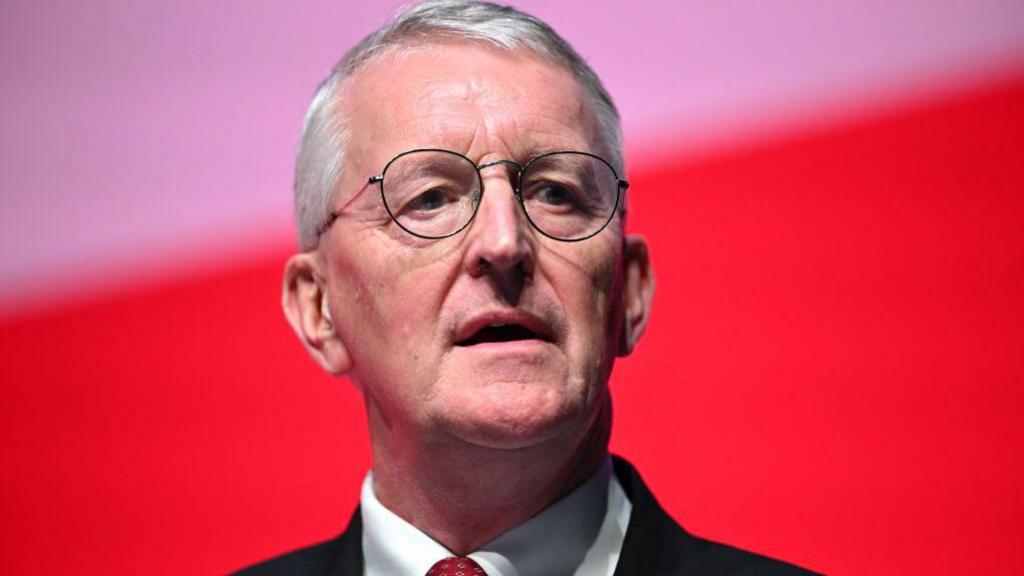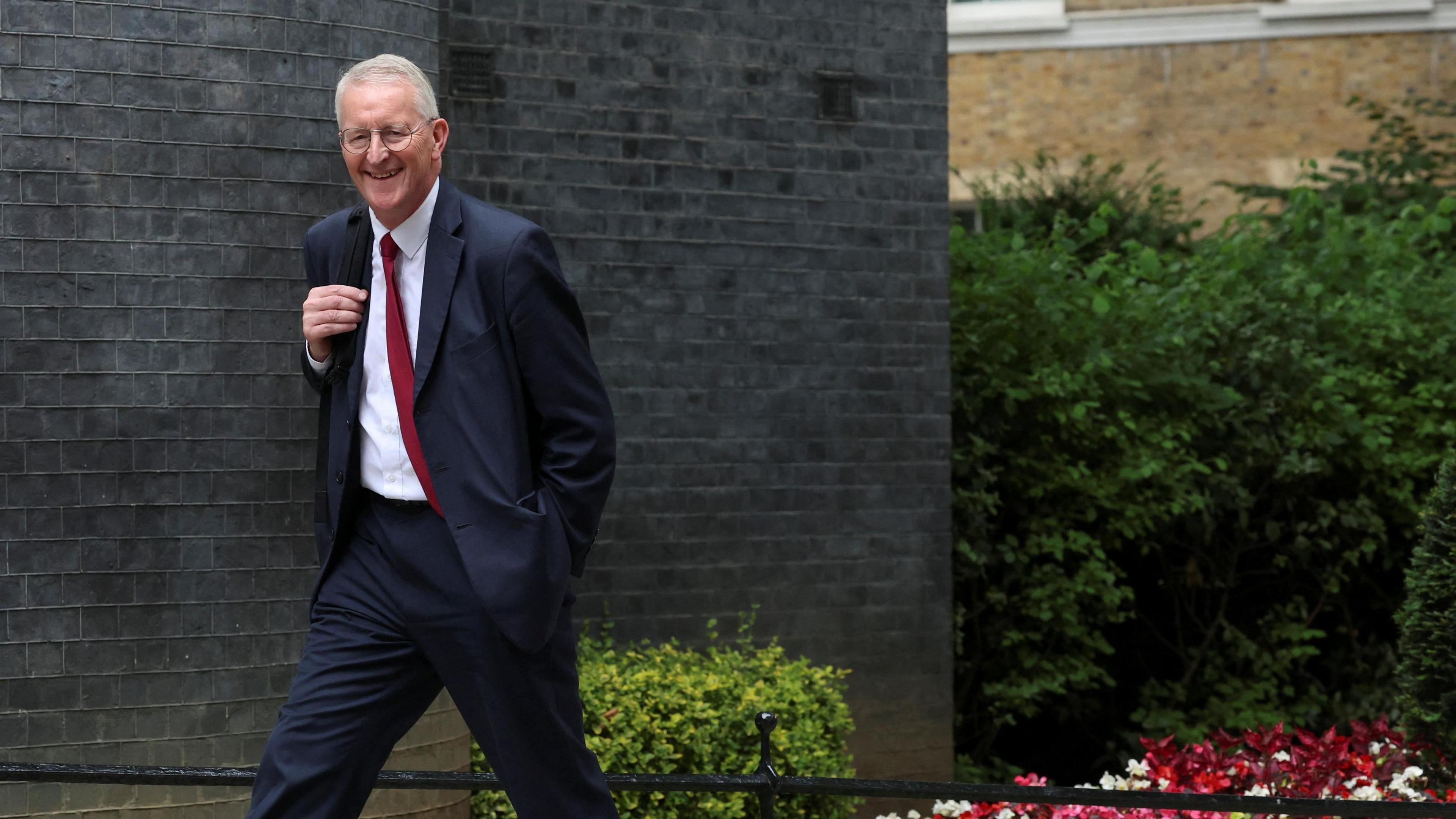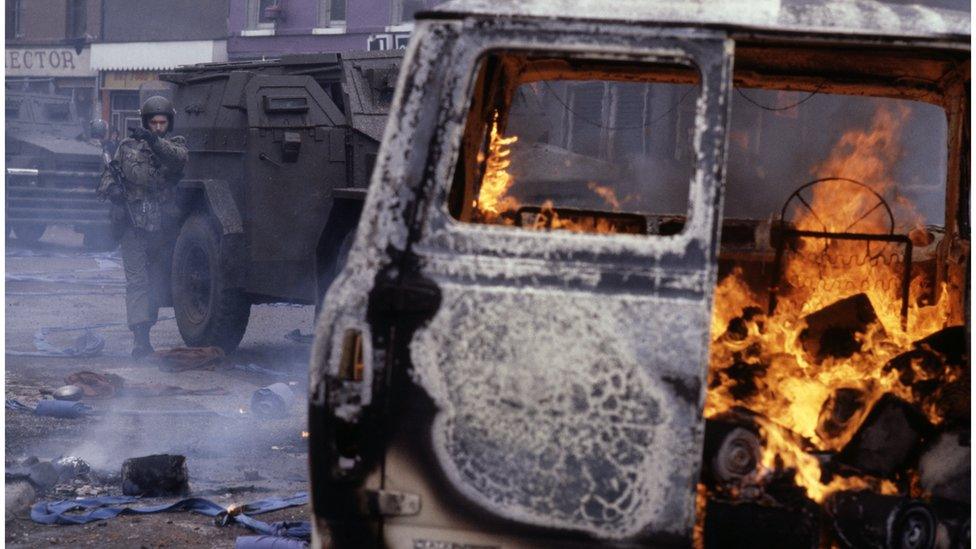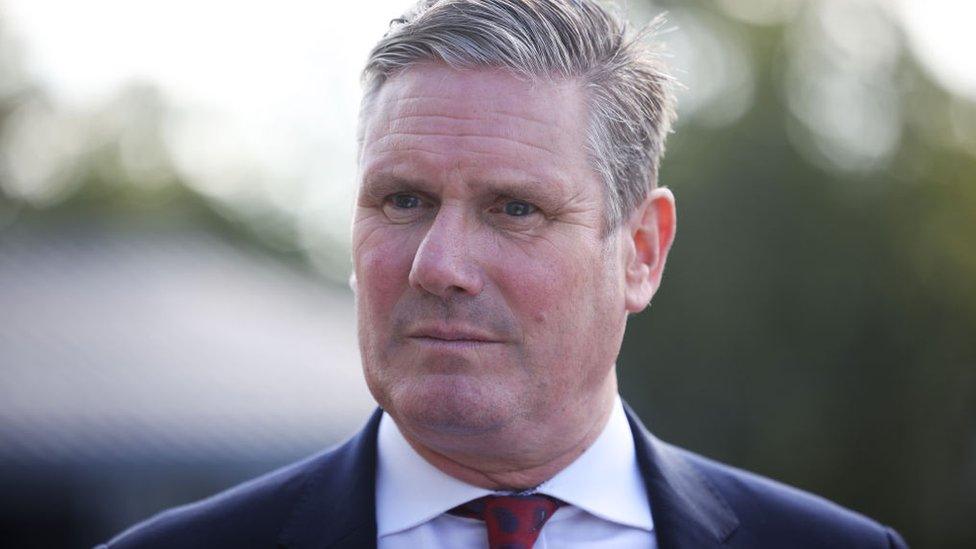Hilary Benn is new Northern Ireland secretary

- Published
Hilary Benn has been appointed the new Northern Ireland secretary following the Labour Party's general election victory.
Mr Benn is a veteran parliamentarian representing Leeds Central in the House of Commons since 1999 and now the new Leeds South constituency.
He had been the shadow secretary of state for Northern Ireland since September 2023.
He also served in the cabinet from 2003 to 2010 under Labour prime ministers Tony Blair and Gordon Brown.
More recently, he served as shadow foreign secretary and chairman of the Brexit select committee.
Mr Benn is the son of former cabinet minister and veteran left-wing campaigner Tony Benn, who also served in Labour cabinets in the 1960s and 70s.
During his time as the shadow Northern Ireland secretary, Mr Benn was vocal on issues such as the Legacy Act, the redevelopment of Casement Park and the restoration of power sharing.
On Friday, Tánaiste (Irish Deputy Prime Minister) Micheál Martin said he had a "positive" first call with Mr Benn.
"A strong and visible joint approach between the Irish and British governments on Northern Ireland is the bedrock of positive progress and I look forward to working closely with the secretary of state in this respect," he said.
"We had a constructive conversation on legacy issues and agreed to work together on a path forward."
Allow X content?
This article contains content provided by X. We ask for your permission before anything is loaded, as they may be using cookies and other technologies. You may want to read X’s cookie policy, external and privacy policy, external before accepting. To view this content choose ‘accept and continue’.
What are his views on the Legacy Act?
The Troubles Legacy Act was passed in September despite opposition from all of Northern Ireland's political parties, several victims' groups and the Labour Party.
It ended historical inquests and transferred of Troubles-era cases to a new body known as the Independent Commission for Reconciliation and Information Recovery (ICRIR).
It also provided a conditional amnesty for people suspected of crimes committed during the Troubles and introduces a ban on inquests and future civil actions related to the Troubles era.
The High Court later ruled this clause was in breach of the European Convention on Human Rights.
In May, Mr Benn said Labour would remove the immunity element from the act because of the High Court ruling, although he noted the government had appealed.
Mr Benn said his party would also restore civil cases and inquests.
Speaking about the ICRIR, he said: "I would not scrap it, I will see how it goes. In the end the test for this is will it work for families.
"In the end if families find that ICRIR works for them - and there are some reforms that we could make to boost confidence in it - then that will put us in a much, much better place than where we are at the moment."

Hilary Benn was seen entering No10 on Friday afternoon
What about Casement Park?
Labour could not "write a blank cheque" to rebuild Casement Park in west Belfast in time for Euro 2028, Mr Benn said in June.
Speaking to Good Morning Ulster, Mr Benn said everyone "would like Casement to be built" in time for the tournament.
He said it was not clear what the final cost of the project would be.
When the stadium was first proposed in 2011, the estimated cost was £76m with £61m coming from Northern Ireland's power-sharing government at Stormont and £15m from the Gaelic Athletic Association (GAA), which owns the ground.
However it is now suggested the stadium could cost more than £300m.
"The question is, where is the rest of the very considerably increased amount of money that will be required?" said Mr Benn.
"I can’t give a blank cheque and you wouldn’t expect me to given the huge rise in the costs there have been and we don’t yet know what the full sum is."
He added there is a responsibility on the UK government to make a contribution but that he would commit to sitting down with all parties to see whether they could "contribute more".
What does his appointment mean for Stormont?
Mr Benn was involved in cross-party talks aimed at restoring the Stormont institutions when he was shadow secretary of state.
He welcomed the deal with the Democratic Unionist Party (DUP) brought about the return to devolution in Northern Ireland in February.
Asked for his views on potential reform of the power-sharing rules to prevent future collapses of the institutions, Mr Benn insisted the responsibility for stability lay with locally-elected politicians.
“When we stand for office, our constituents expect us to go to work and do our job, not to say ‘well, actually there’s a reason why we don’t want to participate in the institutions’,” he said.
“I just have this feeling that after all of the ups and downs and the start and stop there has been, this is a particular moment, it seems to me, for the future of Northern Ireland, and that the people who can ensure that the institutions endure are the politicians who are working in this place.
“I really hope that that is going to be the case, because it’s the best thing for the people of Northern Ireland, for its economic future and for the functioning of a power-sharing democracy here.”
What about the Windsor Framework?
The Windsor Framework is the post-Brexit deal for Northern Ireland, which is still opposed by some unionists.
Labour say they are committed to implementing it in good faith while they also want to reshape aspects of the broader EU-UK deal.
Speaking to BBC NI last month, Mr Benn was clear that sticking with the framework was a prerequisite for improving overall relations with the EU.
He said the prize could be a new agri-food deal with the EU which could soften the Irish Sea border.
"We have signed an international agreement, if we don’t honour it there is absolutely no prospect at all of negotiating an agreement that really would help," he said.
"It won’t be easy to negotiate but we’re committed to starting the process."
What are his views on an Irish unity referendum?
As Northern Ireland Secretary, Mr Benn is the only person with the power to call a referendum on Irish unity, known as a border poll.
He has defended his party leader's view that a vote is “not even on the horizon”.
The remark was made by Sir Keir Starmer to BBC News NI in October.
But Mr Benn said it “reflected the current reality”.
He was asked about the issue at a fringe meeting of the Labour conference in Liverpool.
He replied: "The conditions in which a border poll would be held are very, very clear.
"They’re set out in the Good Friday Agreement and everyone’s read it and everyone knows what it says."
At the time, when Stormont was still not sitting, he said the priority was restoring it rather than a border poll.
Related topics
- Published1 May 2024

- Published5 October 2023

